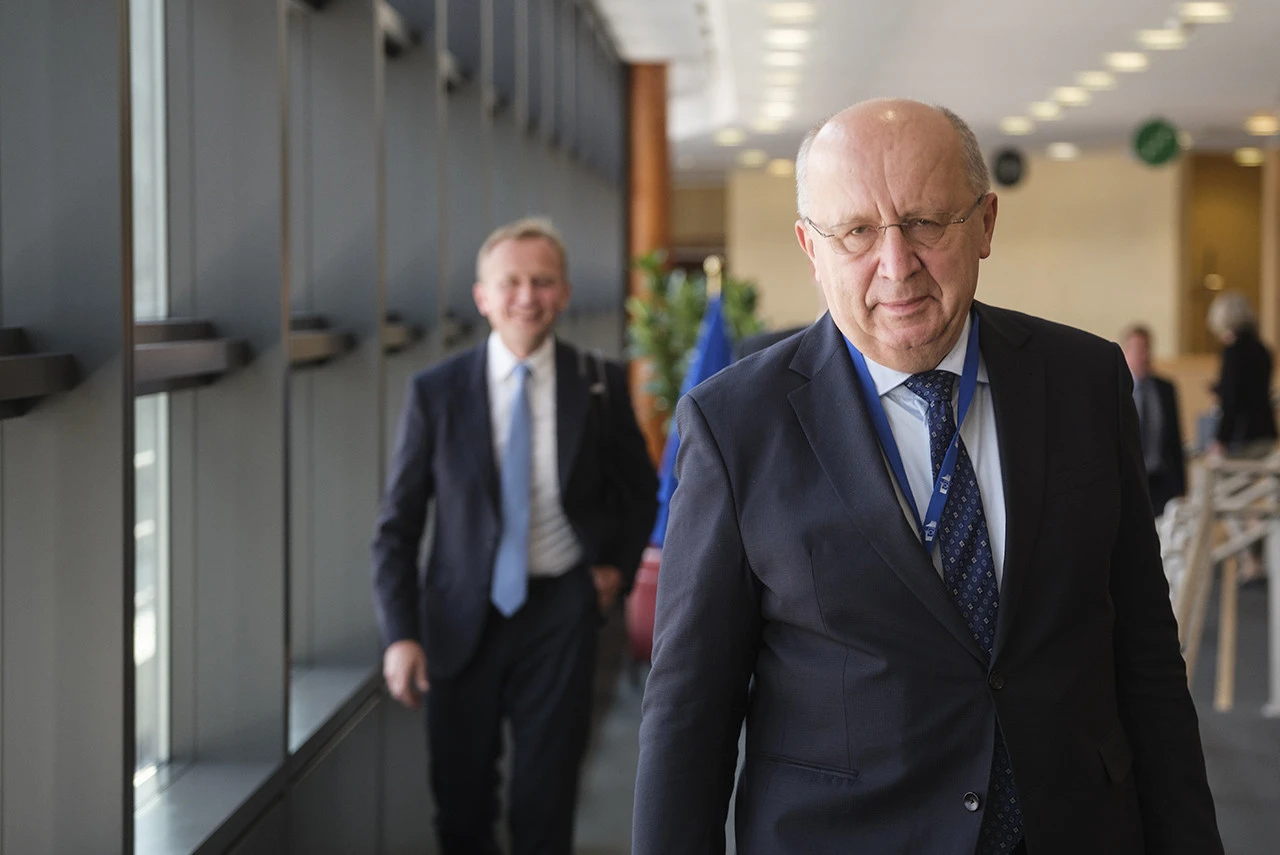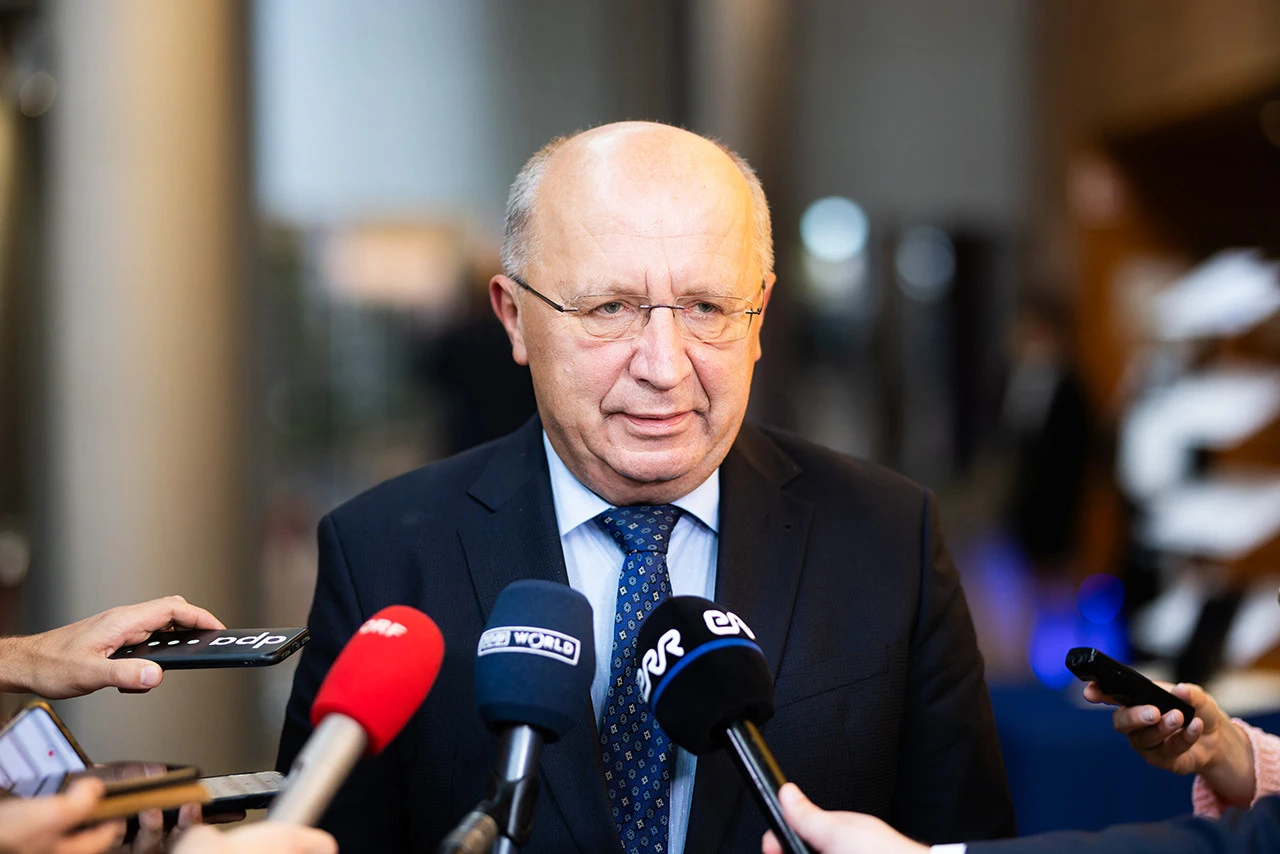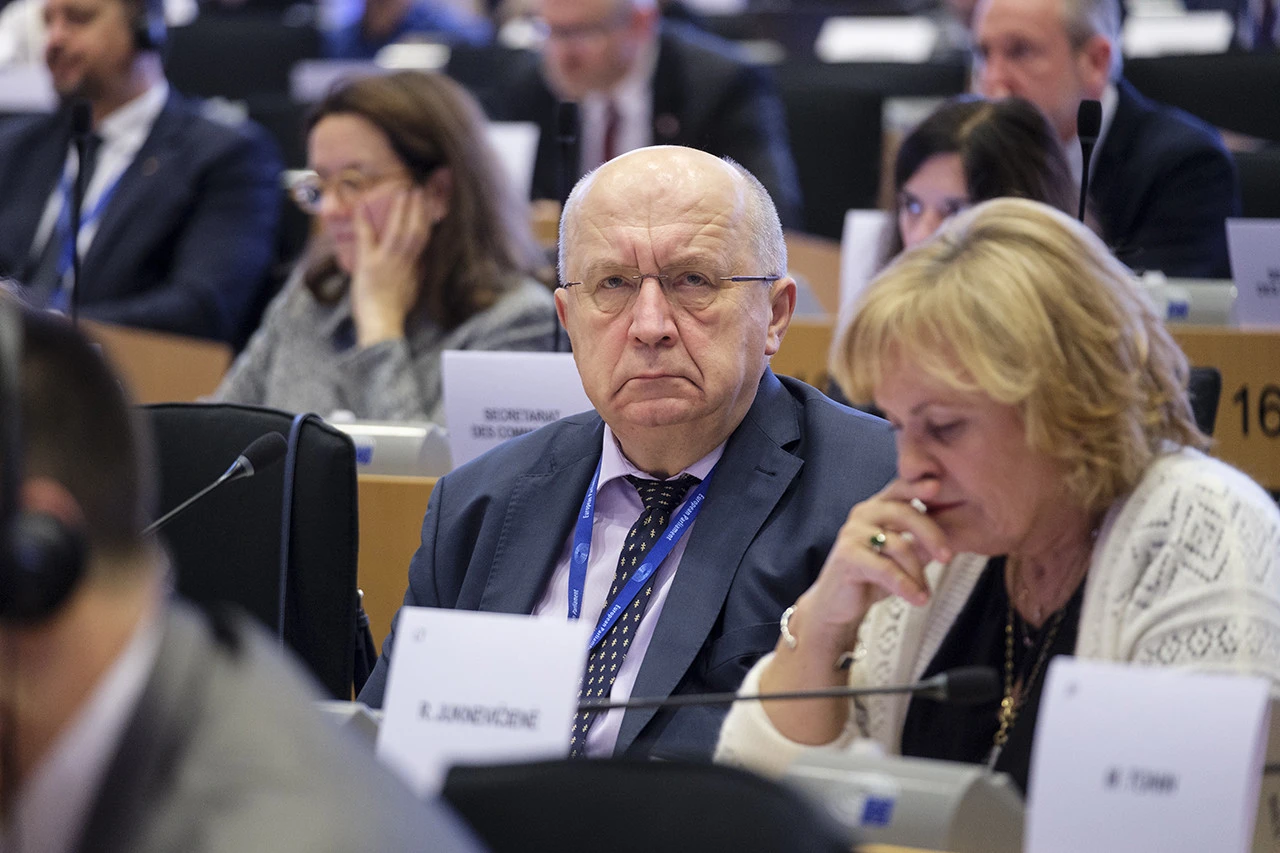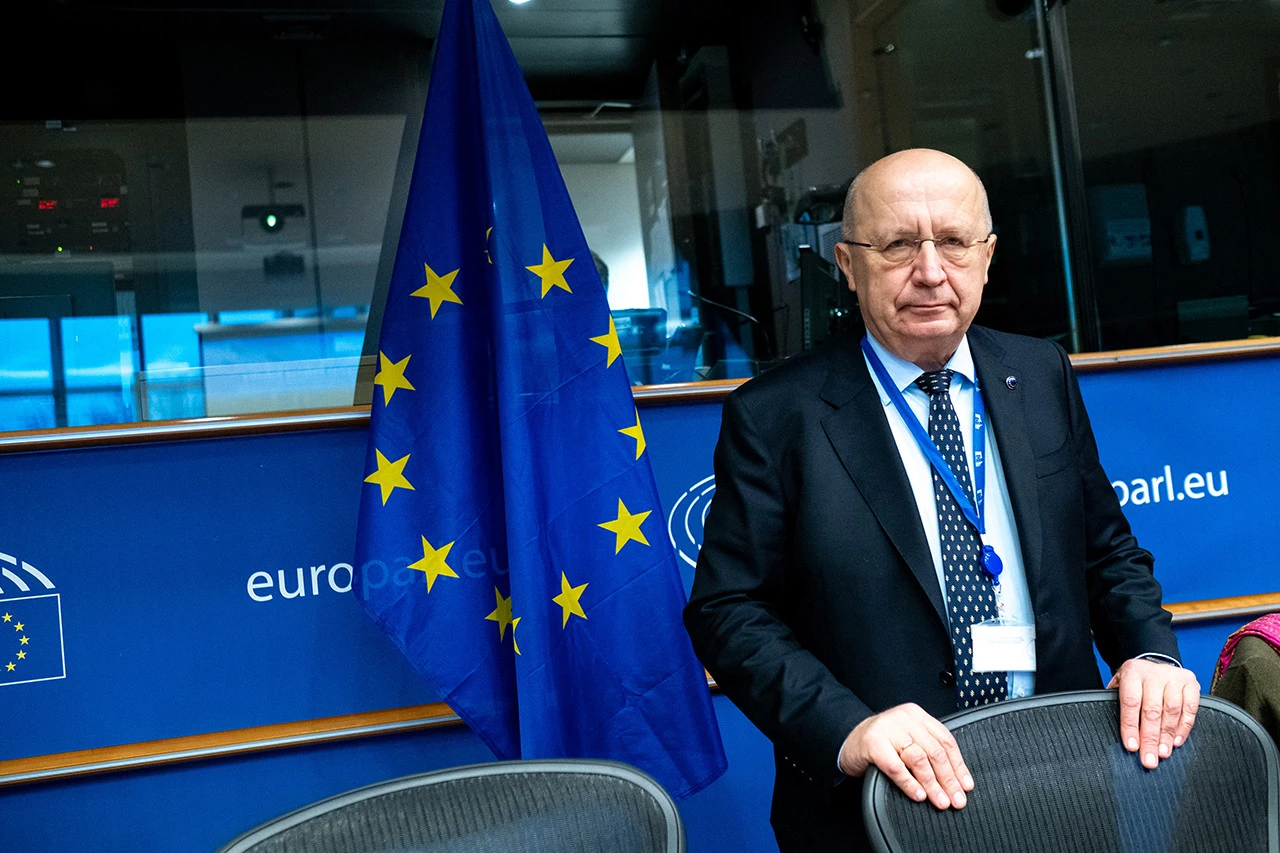
Ukraine has every chance to become success story for EU if it pursues reforms, unlocks its potential — EU Commissioner Andrius Kubilius for Espreso
EU Commissioner for Defense and Space Andrius Kubilius, in an interview with Espreso, shared his vision for Ukraine's European integration, outlined the prospects for cooperation in defense and space industries, and explained why reforms, though sometimes painful, are essential for Ukraine’s successful accession to the European Union
Ukraine's path to Europe is not just the aspiration of its people; it is also a strategic interest for the European Union. Victory in the war, reforms, and meeting membership criteria are the key challenges Ukraine must address to join the European family.
EU Commissioner for Defense and Space Andrius Kubilius emphasizes that Ukraine's defense industry has the potential to become a key partner for the EU, while the country’s space sector offers vast opportunities for collaboration. He also points out that successful European integration requires both political will and the active support of society and businesses.
Discover more about the reforms that will open the door for Ukraine’s EU membership, its strategic importance for European security, and how Ukraine is already shaping Europe’s future in the interview (the conversation was recorded on January 15 - Ed.).
Your mission letter highlights support for candidate countries in their preparation for European Union membership. What aspects of this support do you consider most crucial for Ukraine, particularly in the defense and space sectors?

EU Commissioner Andrius Kubilius, photo: Getty Images
We have a general obligation. All the commissioners are required to support candidate countries in their integration towards the EU. Specifically for Ukraine, I have another obligation, which comes from a newly developed programme — the so-called European Defence Industry Programme.
This programme is currently under discussion in the parliament and the council. A whole chapter of the programme focuses on the need to assist the Ukrainian defense industry in integrating with the European defense industry. This is now my most important priority when it comes to Ukraine.
Mr. Kubilius, let’s explore Ukraine’s potential contributions and position within the European Union. How do you see Ukraine's role in the future European Union, given its strategic importance for European security?
Well, first of all, Ukraine is a very large and resource-rich country. Of course, it is currently enduring brutal Russian aggression, and our support is critically important, not only for Ukraine but also for us. Ukraine is defending us, and we must continue to support it. We are exploring ways to strengthen this support. I am absolutely certain that Ukraine will become a member of the European Union quite soon. It is, of course, a question of timing and how Ukraine will fulfill all the necessary criteria, especially while the war is ongoing.

EU Commissioner Andrius Kubilius, photo: Getty Images
When Ukraine becomes a member of the EU, it will be a very important member. Membership in the EU will bring significant benefits for Ukraine itself. As someone from Lithuania, I remember very well how much EU membership accelerated our economic and social development. Back in 2000, when we started negotiations, Lithuania was still a relatively poor country compared to the EU average. Now, we have surpassed several member states from old Europe and the majority of Central European countries. We are approaching the average level of economic development in the EU. This will also happen with Ukraine.
At the same time, Ukraine will bring considerable added value to the European Union itself. Ukraine has immense economic potential, both in industries and agriculture, as well as in technologically advanced sectors like space, for example, which is part of my portfolio as Commissioner for Defense and Space. Ukrainian membership in the EU is not only in Ukraine’s interest but also a strong strategic interest for the European Union.
Membership in the EU will also expand the area of security on the European continent. The European Union, as an organization, is capable of spreading democracy, fostering development, and driving economic growth. This, in turn, brings stability and security, which are greatly needed.
Building on Ukraine’s strategic significance, I would like to discuss practical cooperation in the defense industry. How do you see the prospects for cooperation and integration between Ukraine's defense industry and the European one?
As I mentioned, we now have a practical proposal — the so-called Regulation of the European Defense Industry Program. This regulation needs to be approved by the parliament and the council. Once approved, it will open opportunities for Ukraine’s defense industry to access all the assistance provided by the program to the European defense industry. This includes support for joint procurement, development of specialized weapons, and the advancement of innovative technologies.
I should also remind you that last year, the Commission established a special Office of Defense Innovation in Kyiv. This initiative is very important. Additionally, while drafting the White Paper on European Defense, we are exploring new ways to support Ukraine’s defense industry and military capabilities. For instance, we are encouraging member states to adopt what we call the Danish assistance model. Denmark has used its own funds, supplemented by European funds, to purchase weapons needed for the Ukrainian army from Ukraine’s defense industry.
Ukraine’s defense industry is incredibly strong and growing rapidly. In some cases, it produces weapons that meet European quality standards, but at a lower production cost than in Europe. This makes purchasing weapons from Ukraine highly advantageous. On the one hand, it supports Ukraine’s industry, and on the other, it allows us to procure a larger quantity of weapons for the same amount of money.
Moving from defense, Ukraine’s space sector is another area with significant potential for collaboration. How do you evaluate the possibility of Ukraine’s integration into European space programs?
That is something we are actively considering. The space industry is very important for defense and security. Many modern weapons systems rely on space data, which is crucial. Given the potential, intellectual capacity, and engineering skills of the Ukrainian space industry — and remembering that much of the space industry during Soviet times was developed in Ukraine — this integration would undoubtedly be beneficial. Such collaboration would be advantageous both for Ukraine and for the European space industry.

EU Commissioner Andrius Kubilius, photo: Getty Images
Commissioner, what specific opportunities or mechanisms exist for Ukrainian companies to actively integrate into European space programs?
Well, that’s very specific. In defense, as I mentioned, we have clear projects and programs to support both the European and Ukrainian defense industries. For example, the European Defense Industry Program includes a chapter dedicated to integrating Ukraine’s defense industry, allowing it to benefit from the same support mechanisms provided to European companies.
In the space industry, the approach is somewhat different. There are various programs that I would recommend the Ukrainian space industry explore, starting with support for innovation through mechanisms like the CASSINI Fund. We are also focusing on improving the development and launch of systems, an area where we currently lag behind other global players. I believe European companies would be highly interested in tapping into the knowledge and expertise of Ukraine’s space industry.
I would like to shift to a broader perspective on European security. The European Defense Union is one of the EU’s ambitious ideas. How do you see Ukraine’s role in this project: as a future member of the Union or as a strategic partner?
When Ukraine becomes a European member state — and I hope that will happen quite soon — we can predict that Ukraine will have the strongest military forces among all EU member states, with significant expertise gained directly from active combat operations.
Additionally, Ukraine’s defense industry will be at a very high level, making it a valuable asset for the European Defense Union. European industries and armies could potentially learn a great deal from Ukraine’s experience and innovations in the defense sector.

EU Commissioner Andrius Kubilius, photo: Getty Images
Mr. Kubilius, turning to internal matters, let’s consider the critical steps Ukraine must take to align itself with European standards and expectations. What key reforms, in your opinion, will be decisive for Ukraine’s successful European integration?
Well, you know, all those reforms are written into the so-called key communique, which your government, the responsible ministers, and Vice Prime Minister Olha Stefanishyna know very well. We went through the same procedure when we became members of the European Union. Ukrainian politicians and society should remember one important thing: membership in the EU is very beneficial for countries like ours — post-Soviet countries with underdeveloped economies.
Of course, Ukraine is suffering and facing a huge tragedy and aggression, which changes everything. You cannot compare Ukraine to any other candidate country. Still, I would urge Ukraine to adopt all the necessary regulations and laws, align with the key communique, and implement reforms as quickly as possible. Some sectors will need a transition period to comply with EU regulations, just as we agreed with the European Commission when Lithuania joined. The same arrangements can be made for Ukraine.
In any case, I must emphasize again that membership in the EU and the reforms required for it are incredibly beneficial for the country’s future. Even if the process of reform is sometimes painful — or even very painful — the outcomes are worth it. I remember during our negotiations, for example, how our farmers and people in the agricultural sector were very concerned. They feared that EU membership would destroy their farms and livelihoods. Now, more than 20 years later, we see that agriculture has actually received the greatest benefits from our EU membership.
Commissioner, how do you see the future of Ukraine in the EU in 5-10 years?
Well, it depends, of course, on different circumstances. I cannot predict or promise anything with certainty. Negotiations are a very important aspect of this process, and this is not directly within my portfolio. However, I do recall that when I was in the European Parliament — until last year — we approved a special report in 2023 called the "New Enlargement Strategy."
In that report, the European Parliament clearly stated that the enlargement process for all candidate countries, including the Western Balkans, Ukraine, and Moldova, should be concluded by 2030. That was set as the target date. Whether that is achievable, we shall see. But I sincerely hope that the enlargement process will progress in a very effective and timely way.
As we conclude, it’s important to summarize the key priorities Ukraine should focus on for its EU membership path. What do you think is the most important message for Ukrainian society, businesses, and politicians regarding the prospects of EU membership?
My message is very simple. It is most important to understand the strategic goal, which I urge Ukrainian society to fully commit to. Of course, the war and achieving victory remain the most urgent priorities for now. But looking into the future, I am optimistic that Ukraine will win this war, secure peace through strength, and ultimately become a member of the EU.
This will open the door to creating the Ukrainian success story that the country so greatly deserves. Such success is vital not only for Ukraine but also for the European Union and all of us. So, good luck. Glory to Ukraine!
Glory to the Heroes!
- News











































